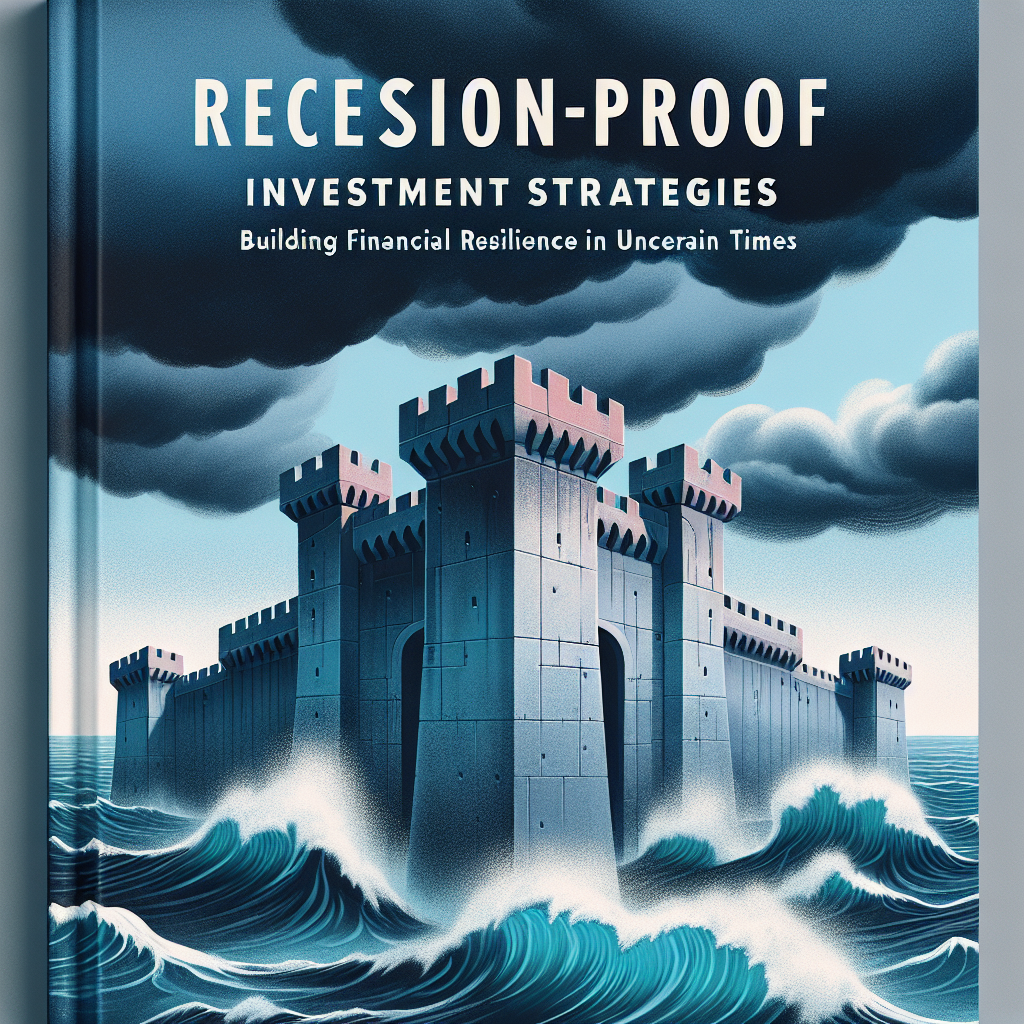
Introduction: Navigating Economic Downturns with Smart Investments
Economic slowdowns and market volatility can create anxiety among investors. However, adopting recession-proof investment strategies not only helps safeguard capital but can also lay the foundation for long-term financial growth. This article explores robust and recession-resistant investment strategy options, integrating key principles and LSI-keywords like “safe investments during recession,” “diversified portfolio,” “defensive stocks,” and “passive income streams.”
Understanding Recession and Its Impact on Investments
A recession is typically marked by declining economic activity, reduced consumer spending, and increased unemployment. During such times, traditional investment vehicles may underperform, making it crucial to develop a recession-proof investment strategy. The key lies in identifying assets that can withstand economic shocks and continue to generate returns.
Key Characteristics of Recession-Proof Investments:
- Stable Cash Flow: Investments that continue to provide income, such as dividends or interest, are highly valued.
- Low Volatility: Assets with a history of minimal price fluctuations offer greater security.
- Essential Goods and Services: Companies dealing with necessities tend to perform well during downturns.
Diversification: The Cornerstone of Recession-Proof Strategies
Asset Classes to Consider:
- Blue-Chip Stocks: Established companies with a track record of stability and regular dividends.
- Government and Municipal Bonds: Considered safe investments during recession due to government backing and lower default risk.
- Real Estate Investment Trusts (REITs): Offer exposure to the property market and often provide steady passive income streams.
- Commodities: Gold and other precious metals often act as hedges against inflation and economic instability.
Defensive Stocks: Weathering the Storm
Defensive stocks, also known as non-cyclical stocks, belong to sectors that provide essential goods and services—such as healthcare, utilities, and consumer staples. These companies typically maintain stable earnings, making them a vital part of any recession-proof investment strategy.
Examples of Defensive Sectors:
- Healthcare: Demand for medical services and pharmaceuticals remains steady regardless of economic conditions.
- Utilities: Electricity, water, and gas are necessities, ensuring ongoing revenue streams for utility companies.
- Consumer Staples: Products like food, beverages, and household goods are always in demand.
Fixed-Income Investments: Preserving Capital and Generating Income
During economic downturns, fixed-income investments such as bonds and certificates of deposit (CDs) offer stability and predictable returns. These instruments are less sensitive to market swings and are considered ideal for conservative investors seeking safe investments during recession.
Types of Fixed-Income Instruments:
- Treasury Bonds: Backed by the government and virtually risk-free.
- Corporate Bonds: Issued by companies with strong balance sheets, offering higher yields with manageable risk.
- Municipal Bonds: Exempt from federal taxes and suitable for investors in higher tax brackets.
Alternative Investments: Exploring Non-Traditional Avenues
Alternative investments, such as precious metals, peer-to-peer lending, and certain types of real estate, can provide additional layers of protection. These assets frequently have low correlation with traditional markets, making them valuable components of a recession-resistant investment strategy.
Popular Alternatives:
- Gold and Silver: Historically seen as safe havens during economic turbulence.
- Private Equity and Venture Capital: May offer higher returns, but come with increased risk and longer investment horizons.
- Farmland and Timberland: Tangible assets that often appreciate in value and generate income.
Generating Passive Income Streams
One of the most effective ways to recession-proof your finances is to create multiple passive income streams. Investments such as dividend-paying stocks, rental properties, and high-yield savings accounts can provide consistent cash flow, helping to offset losses from other areas.
Reliable Sources of Passive Income:
- Dividend Aristocrats: Companies with a history of consistently increasing dividend payouts.
- Rental Real Estate: Generates monthly income and potential for capital appreciation.
- Peer-to-Peer Lending: Offers attractive returns, though it comes with unique risks.
Risk Management: Protecting Your Capital
No recession-proof investment strategy is complete without a robust risk management plan. This includes regular portfolio reviews, rebalancing allocations, and maintaining sufficient liquidity. Setting stop-loss orders and using hedging instruments can further limit potential losses.
Conclusion: Crafting Your Personalized Recession-Proof Investment Strategy
Building a recession-proof investment strategy requires thoughtful planning, diversification, and a focus on both capital preservation and income generation. By incorporating defensive stocks, fixed-income instruments, alternative assets, and passive income streams, investors can navigate economic downturns with greater confidence. Remember to tailor your strategy to your unique risk tolerance and financial goals, and consult with a financial advisor for personalized advice.
Stay proactive and resilient—your financial future depends on the strategies you implement today.